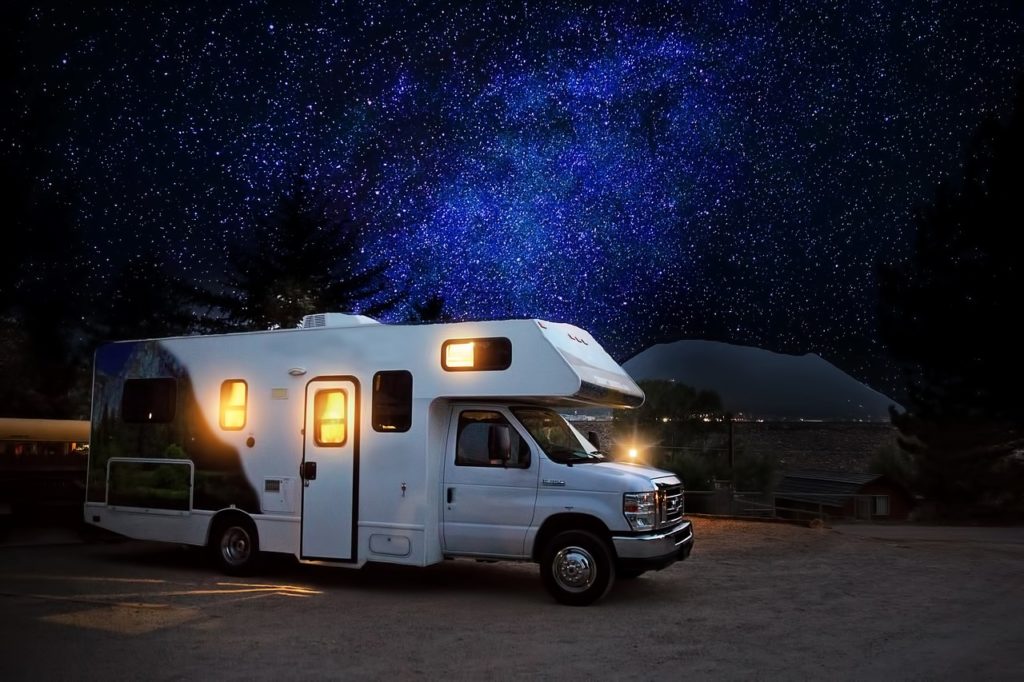
The RV market has seen a huge boost in 2020 – thanks to travel restrictions related to COVID-19. A recent study found that 46 million Americans plan to take an RV trip within the next year!
As the weather gets colder, the most important aspect of an RV is the heating. If you’ve got a road trip coming up, you need to be prepared for the worst.
But how exactly do you keep yourself warm inside your caravan?
What are your heating options?
In this article, we will discuss what you can do and the choices if you want to buy heaters. We will also tell you the pros and cons to help guide you in choosing your heater – as well as some general safety tips.
Keeping Yourself Warm without a Heater
There are ways you can add heat to your recreational vehicle. The most obvious is to keep you van closed. Make sure you put down your curtains. The type of curtain also helps in keeping your recreational vehicle warm. For the winter, you want blackout insulated curtains.
And of course, pack warmers and thick coats. Make sure you wear thermal clothing and woolen socks. Cozy slippers also help.
Use thicker beddings like wool or a down comforter. There are also van-friendly electric blankets if you wish to try them.
Rugs are not only good aesthetically, but serve a purpose to warm your RV. Thicker floor rugs do a lot to help keep your feet and body warm.
When you cook, use your oven. It will help warm up the air inside the caravan. You can also use hot water bottles. Good hot chocolate and hot soup are always feel-good options for winter.
Diesel – Powered Heaters
If you have a large caravan, consider using diesel-powered heaters. They are cost-effective compared to other heaters. The parts like the fuel tank, exhaust, and air intake are installed externally, while outlets are inside. A portable diesel heater is placed or operated outside the van – but the hot air duct is kept inside.
There are many advantages to a diesel-powered heater. The first one is it’s readily available. It’s easy to get diesel from any nearby service station. Moreover, diesel-powered heaters are very efficient due to the low rate of fuel consumption.
In terms of installation, most diesel-powered heaters are easy to mount. Another advantage is that a diesel-powered heater provides clean dry heat, unlike others where you can get humidity and condensation.
One major disadvantage is that it can be loud. These heaters require a diesel fuel tank and tend to be more expensive than LG gas heaters.
Gas-powered heater
What are the advantages of a gas-powered heater?
One is that the gas set-up is usually already in place – as most RVs have a gas cooker.
Another major advantage of a gas-powered heater is that it runs independently from the engine. Unlike a diesel-powered heater – where you need a separate fuel tank. The heat for a gas-powered model comes from a gas bottle that provides an economical source of heat.
These heaters are pretty quiet, meaning you can comfortably sleep using this heater.
The downside to a gas-powered heater is the regulatory requirements. This system needs to be installed only by a licensed gas fitter to ensure it abides by the gas regulations.
Another disadvantage is sourcing the gas if you are from remote towns or places – you’ll need propane or natural gas.
Gas-powered heaters can also be a bit pricy.
Electric Heater
The electric heater works using the RV’s battery. If you’re going to go this route, definitely invest in solar to keep the battery juiced up – electric heat pulls a lot of energy.
You may also consider radiant under-floor heating, which can be built-in or added under a floor mat.
Space heaters
Space heaters can use gas, diesel, or a combination of both.
They operate with air sucked in from the interior of the caravan passing through a vent. Then it passes through a heating unit – then returns via another vent. Other models operate along with a hot-water unit. There are also models that can be installed onto the chassis of the caravan.
Other Tips
Practice safety first.
- Make sure you have a fire extinguisher inside your caravan.
- Ensure you have smoke and carbon monoxide alarms inside the RV.
- Inspect your caravan to see if the heat is escaping from holes like windows, doors, or any cracks.
- Check your ventilation. This is important, especially for an enclosed area with gas or diesel-powered heaters.
- Get proper insulation around your van. Good insulation can keep the cold out and add more warmth. It also reduces energy wastage.
Over to You
We hope you were able to get a decent idea about your caravan heating options. Don’t get left in the cold. Make sure you’re completely prepare for winter and before setting out on a road trip.
Happy Travels!




No Comments